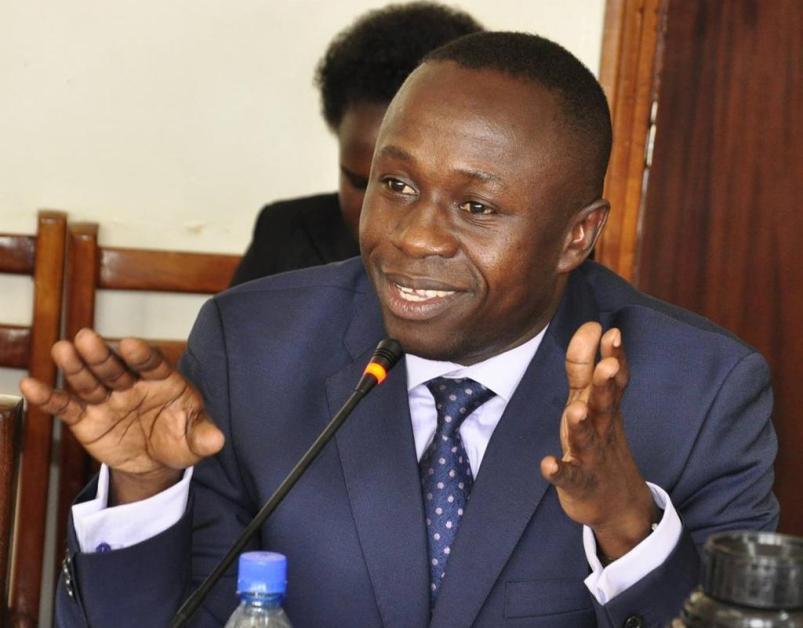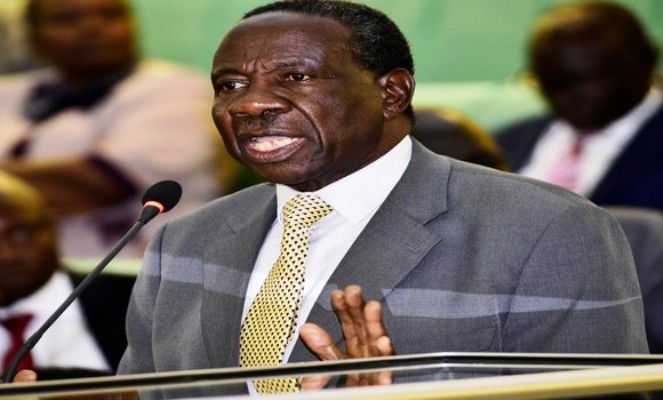The State Minister for Sports, Peter Ogwang tabled the Bill before Parliament last week
The Physical and Sports Bill of 2022 proposes tough penalties for sexual exploitation, manipulation of sports results, and betting among others. The bill proposes penalties ranging from Shillings 1.4 million to 400 million on conviction or imprisonment of up to 10 years.
The State Minister for Sports, Peter Ogwang tabled the Bill before Parliament last week, a month after Moses Hassim Magogo, the Budiope East Member of Parliament a private member’s National Sports Bill.
According to Ogwang, the National Council of Sports Act, Cap 48, enacted in 1948 is inadequate to address the current challenges of sports administration and management in the country.
He says that the 1948 Act is limited to only amateur competitive sports and does not provide for the commercialization of sports or professionalism, the current global trends in sports, and to a large extent inhibits the development of sports in Uganda.
The Bill seeks to repeal the National Council of Sports Act, Cap. 48 and provide for the role of the Uganda Olympic Committee.
“The Bill provides offenses including doping, unlawful utilization of commercial rights, and the unlawful use of sports results for betting. It specifies the prohibited acts of violence and hooliganism and prohibits the unauthorized broadcast of sports events and competitions,” said Ogwang.
Under the Bill, the government proposes a fine of 100 million Shillings or imprisonment of 10 years or both for a person who manipulates sports results or the course of sports competition.
According to the Bill, a person shall be taken to have manipulated sports results where he or she receives money or any reward to underperform or to withdraw from a sports competition, provides confidential information relating to a sport, promises or gives undue advantage to another, solicits or accepts undue advantage, predetermines a sports result, and being an adjudicator deliberately misapplies the rules.
A fine of Shillings 9.6 million or imprisonment of 10 years is proposed for a person who emotionally, financially, or sexually exploits a participant in a sports competition.
The same penalty is also proposed for a person who commits an act of violence or hooliganism at a sports event.
Such acts include destruction or damage of property, physical injury to another, disturbing the peace and order at a sports competition, intentionally disrupting a sports competition, intimidating a sports personnel or official, and throwing a projectile or substance to such a person and inciting a person to do an act of violence.
A person convicted of one of these offenses shall, in addition to the penalty make good the loss and damage suffered and serve a ban from participating in or attending sports events and competitions for a period not exceeding 3 years.
Where an offense prescribed in the proposed Bill is committed by a body corporate, the proposed law gives the court powers to hold the principal officer liable for the offense and penalty prescribed.
In addition to any penalty prescribed in the relevant provision, the court shall impose a penalty not exceeding 400 million Shillings on each count.
“A body corporate shall be deemed to have committed an offense if the act or omission constituting the offense was committed by a person who has the power to represent the body, has authority to take decisions, and has authority to exercise control over the affairs of the body corporate,” reads the Bill.
The Bill also prohibits a person licensed under the Lotteries and Gaming Act, 2015 to allow betting on a sports activity or using results of a sports competition organized by a national sports federation, without the written authorization of the national sports federation.
A person who contravenes the subsection is liable to a fine not exceeding 40 million Shillings or imprisonment not exceeding 10 years or both and shall in addition to the penalty, pay the concerned national sports federation or athlete damages.
The Bill prohibits betting by a match official, referee, umpire or match adjudicator, a coach or trainer, an athlete or participant in a sports discipline, an owner of a sports club, a member of a national sports federation, and an employee of a federation or sports club.
The proposed law says that these shall not bet or advise a person on any betting activity, in relation to a sports activity organized by a national sports federation. Contravention of the provision leads to a fine not exceeding 1.44 million Shillings on conviction, imprisonment not exceeding 3 years, or both.
This same penalty is proposed to a person who without authorization of a national sports federation or an athlete, uses commercial rights granted by a national sports federation or an athlete.
The Bill requires a member of the board, officer, or staff of the National Council of Sports not to disclose any information obtained in the course of his or her employment and any person who contravenes the provision is liable on conviction to a fine not exceeding 960,000 Shillings or a term of imprisonment not exceeding 12 months or both.
Doping
The proposed law prohibits doping and provides that an athlete shall not use, consume or have in his or her possession a substance or use a method of sport banned by the World Anti-Doping Agency. Any athlete who goes against this commits an offense and shall be subject to the World Anti-Doping Agency sanctions.
The same sanctions will also apply to a person who administers an athlete’s substance or encourages the use of a substance or sells a substance to an athlete.
Sanctions for Anti-Doping rule violations range from a public reprimand to a lifetime ban.
National Recognition and Reward Scheme
The Bill provides for the establishment of the National Recognition and Reward Scheme by the government to recognize and award outstanding and deserving sports personalities who bring honor to the country.
“The Minister may, in consultation with the Minister responsible for finance and Minister responsible for public service, by statutory instrument, prescribe the awards including monetary payments, pension and gratuity that may be awarded to the sports personalities under the National Recognition and Reward Scheme,” reads part of the Bill.
Also provided in the Bill is the registration of National Sports Federations to manage sports disciplines and the proposed law says there shall be registered only one national sports federation for a particular sport.
The eligibility for registration involves being incorporated as a company limited by guarantee under the Companies Act, being engaged in a sports discipline with a national character for example with the participation of Ugandans in at least 75 percent of the country’s districts and leadership elected by a national delegates conference comprised of persons drawn from at least half of the districts.
“A national sports federation shall, within four months of the end of each financial year, submit to the Council a financial report which shall include, the financial statements including audited accounts, estimates of revenue and expenditure for the proceeding financial year, report of activities of the federation conducted in the financial year,” provides the Bill.
Moses Magogo, the mover of the private member’s Bill says that there is no big difference between his proposed law and that of the government apart from the detail.
He said that since both Bills are before Committee on Education and Sports for consideration, they will be harmonized into one as guided by the Speaker of Parliament.
The object of Magogo’s Bill is to repeal the National Council of Sports Act. Cap 48.
The proposed law intends to consolidate and modernize the law relating to the incorporation and registration of national sports organizations and community sports clubs as well as provide for the management, promotion, development, and regulation of professional, amateur, and recreational sports in Uganda.
According to the Bill, lack of uniformity in the registration and incorporation of national sports associations and federations has resulted in governance and administration challenges including lack of legal personality, multiple reporting and regulatory legal regimes, interference, and lack of independence of national sports associations contrary to international sports governing body regulations, the existence of numerous national sports associations regulating a single sports discipline, and mal-administration of the affairs and funds of national sports associations and federations.
-URN





